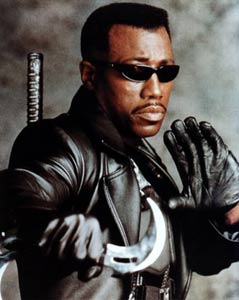-- No word yet on who has interviews from the
JNC. We do know that interviews will take place on November 30.
-- The NY Times covers Miami
cyber-criminal Albert Gonzalez in
a lengthy article. It's a fascinating piece about how Gonzalez fell back into a life of crime after cooperating with the feds. He explains that he would have been better off just serving his time instead of snitching in the first place.
-- Does anyone really think that we should still have judicial elections?
This is ridiculous.
-- First opinions of the Term come out today. Check out
ScotusBlog around 10am.
-- Judge Cooke won't be in trial this week. She's in Atlanta sitting as a visiting judge on the 11
th Circuit.
UPDATE -- the Supreme Court decided one case,
Abbott v. United States, No. 09-479, holding that Section 924(c) and does not preclude the imposition of mandatory minimum sentences for different counts of conviction.

